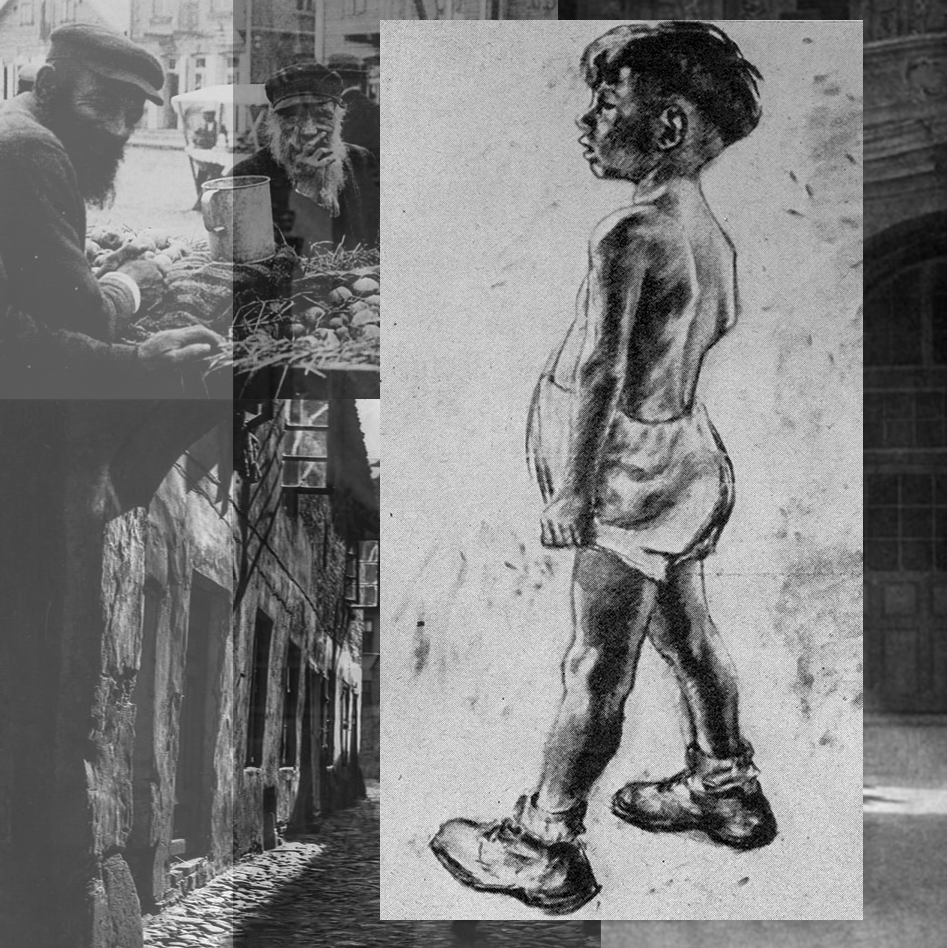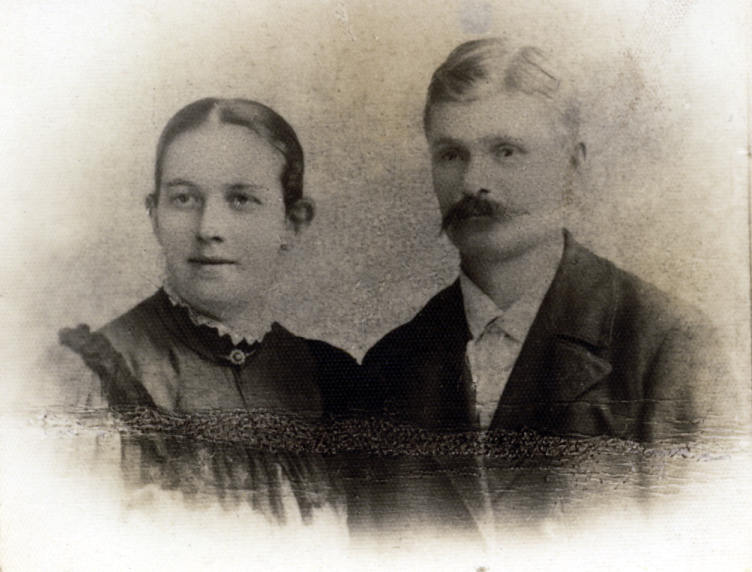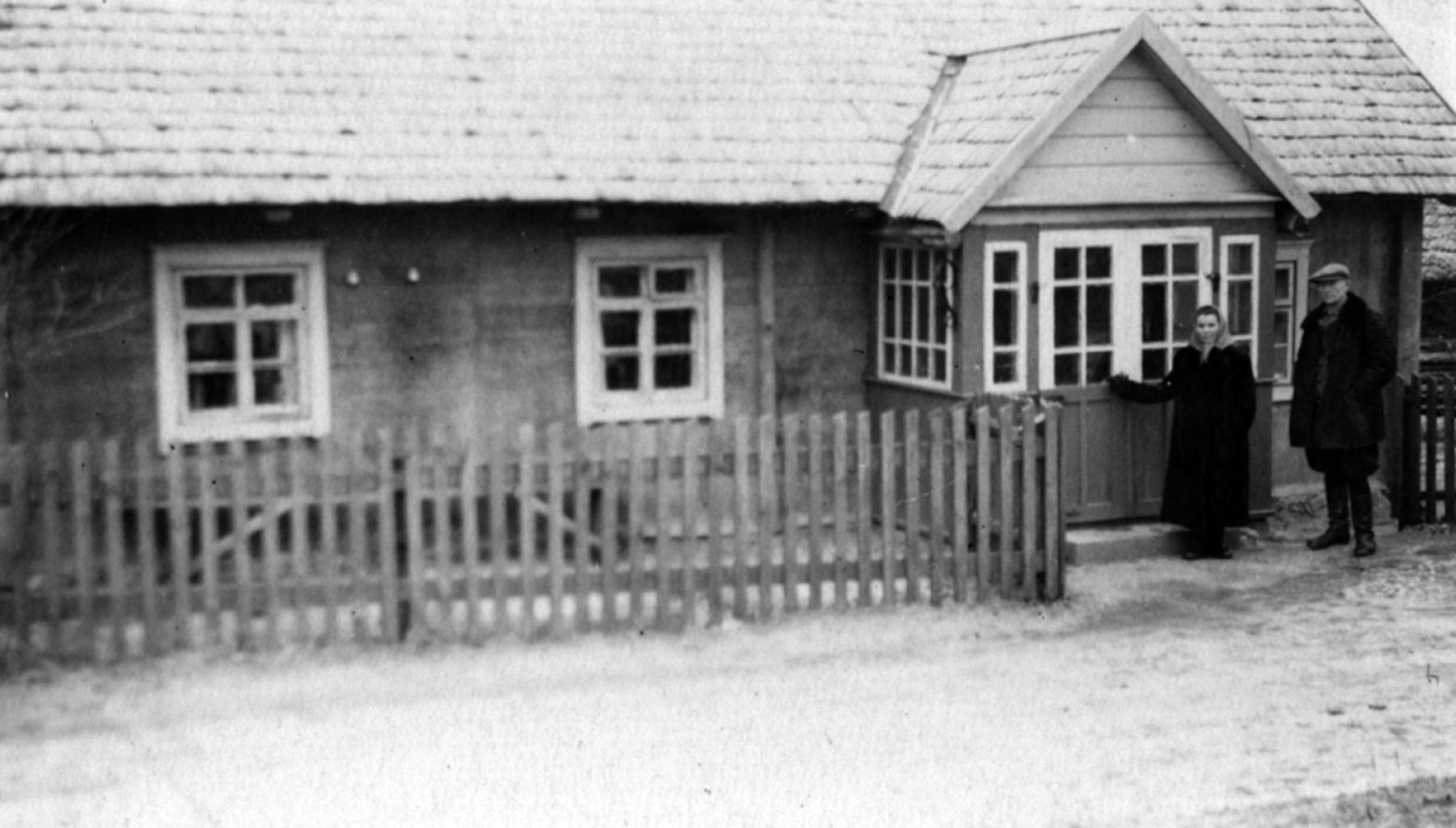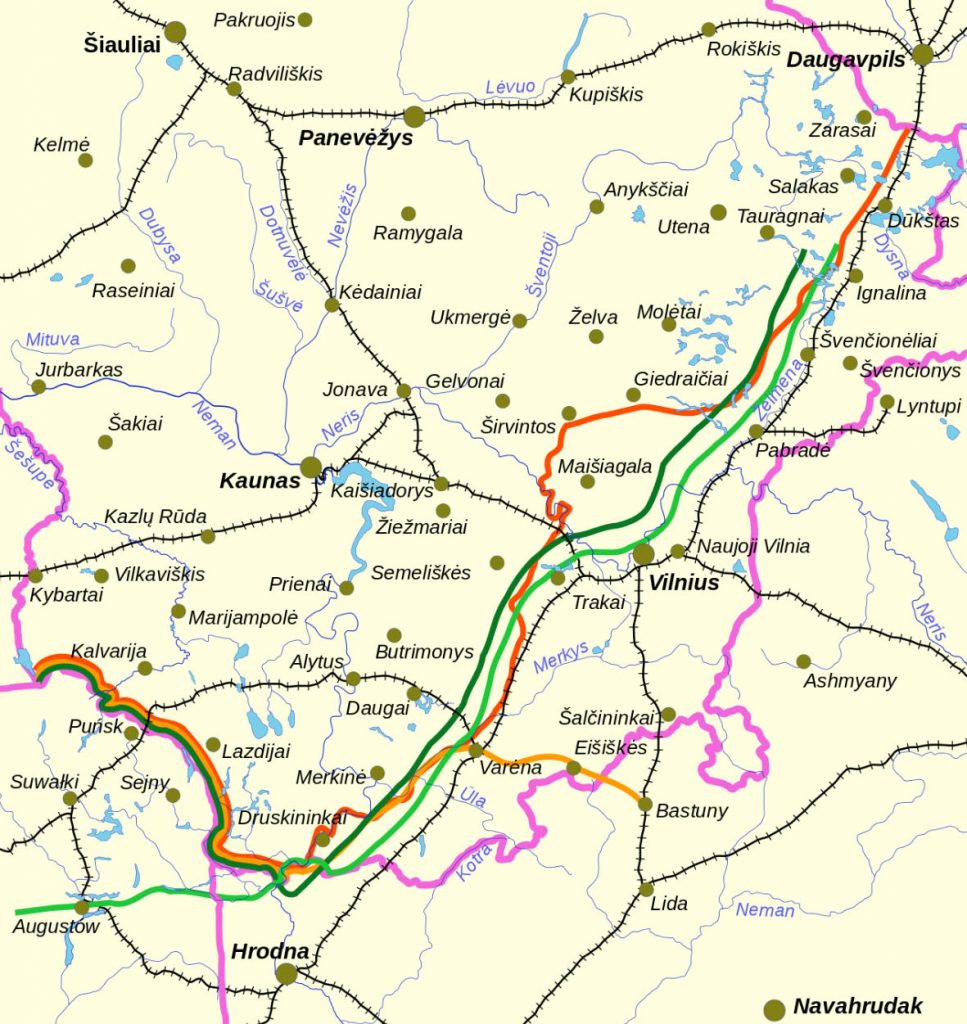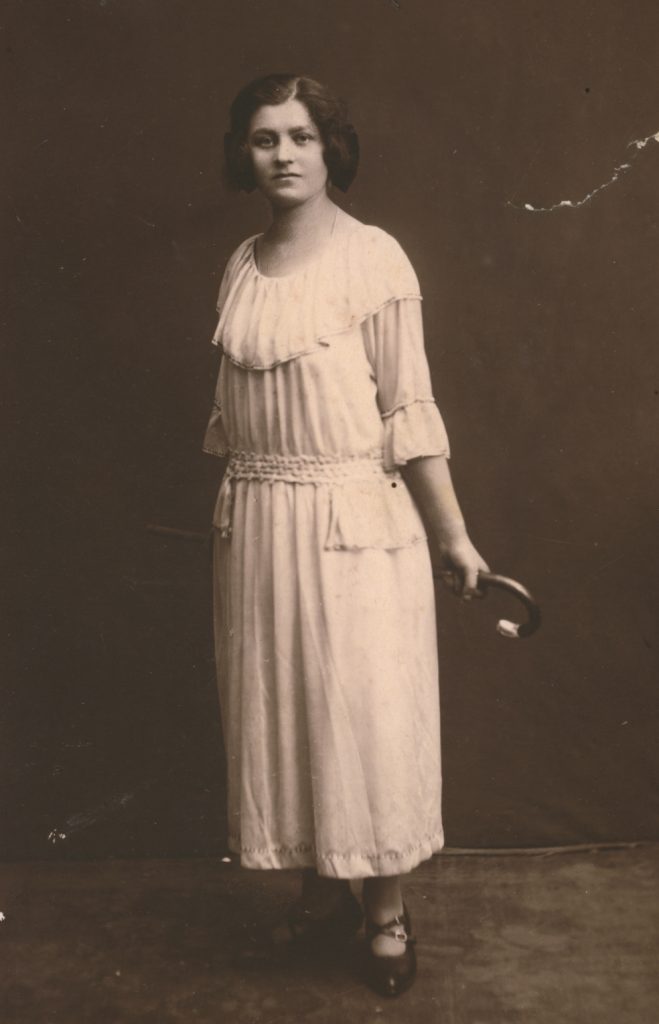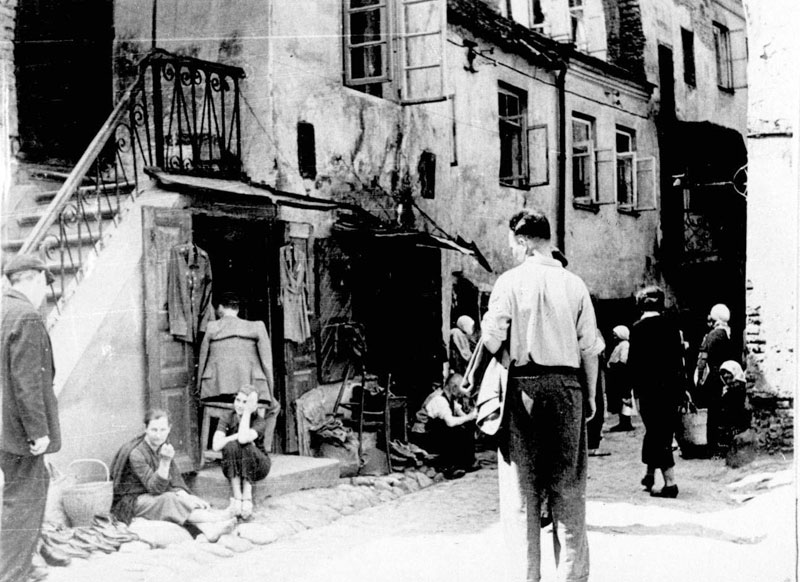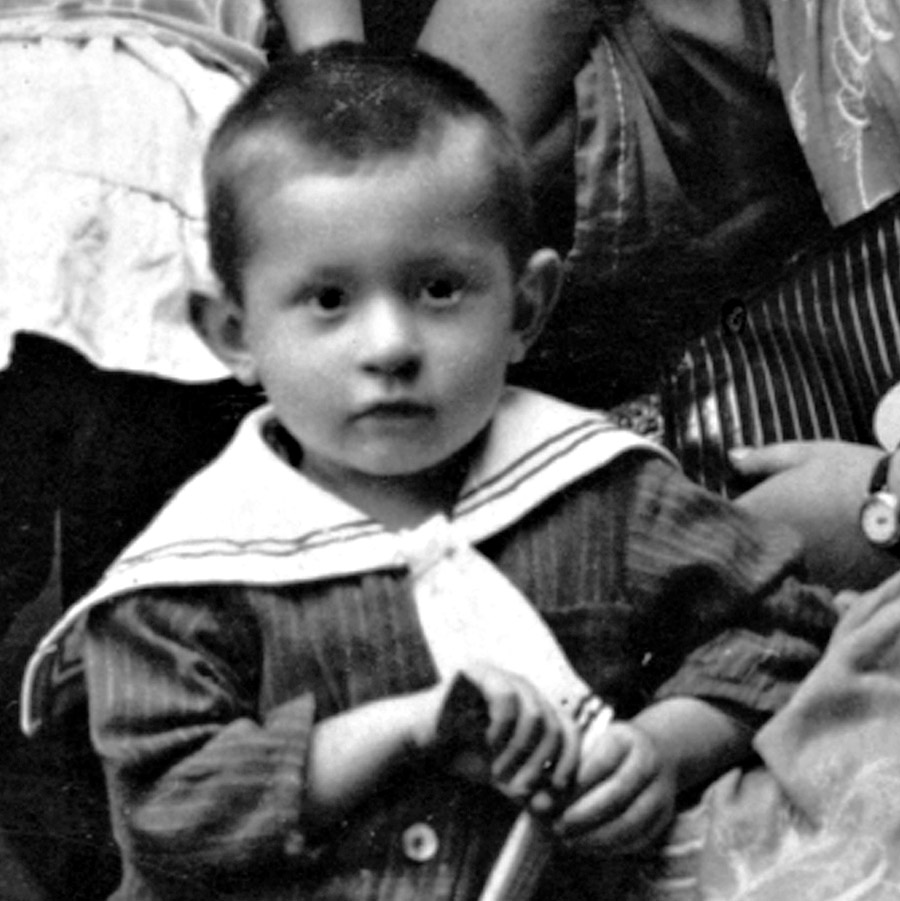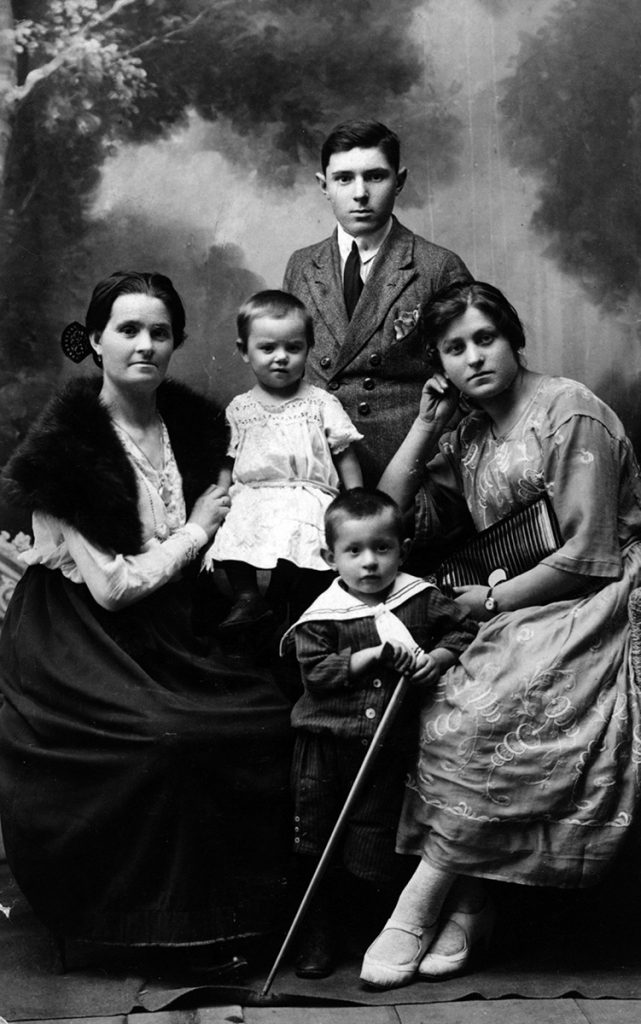
Mother Virginija (Bernataviciute), Sofija, Steponas, their aunt, and young Viktoras
From St Petersburg to Vilnius
Born after The Great War, Viktoras’ parents Vincas and Virginia were displaced from their native Lithuania and found themselves in St petersburg with their first son, Steponas and in 1921, Viktoras was given light to this world during a devastating famine which followed the Bolshevist Revolution. This tumultuous time forced the family to flee once more and in 1922 they headed back to their homeland eventually settling back in Vilnius, now under occupation by Poland, claiming the once capital of Lithuania as its own.
Their parents struggled to gain a foothold for survival and to add further strain, another child, Sofija, was born. Shortly after, their father passed away from an untreatable condition. Viktoras was three.
- Born in St Petersburg in 1921, February 27.
- 1922 – Moved to Vilnius
- Father passed away in 1924
- Lived between the demarcation line of Vilnius, crossing back and forth for schooling
The first memories
Early Years
Finally, on January 1, 1919, the German garrison withdrew and passed the authority over the city to a local Polish committee, against the pleas of the Lithuanian administration. A Polish administration started to be formed. Former members of the local Polish Self-Defence formations, now formally enlisted into the Polish Army, took over the posts while the Lithuanians withdrew along with the Germans. On January 5, 1919 the city was taken by Bolshevik forces advancing from the east. Vilnius was proclaimed the capital of the Lithuanian–Byelorussian Soviet Socialist Republic. For the next 4 months the city became a communist experiment in governance. During the course of that conflict, on April 19, 1919 the city was again seized by Poland (the Vilna offensive), this time by forces of the regular Polish Army. A year later, on July 14, 1920 it was lost to Soviet forces again (this time, the Soviets were aided by Lithuanians, who were promised Vilnius).
Probably, the main reason behind the Soviet agreement with Lithuania was to weaken Poland and hand the disputed territories to a weaker state, which Lithuania was at the time, in order to reconquer the area more easily after the retreat of the Red Army had halted. Also, the independence of the Baltic States was seen by Lenin as temporary. However, after the Battle of the Niemen River the Red Army was again defeated and Bolshevik Russia was forced to abandon her plans for reincorporation of all the lands lost by the Russian Empire in the Treaty of Brest-Litovsk
The Council of Ambassadors and the international community (with the exception of Lithuania) recognized Vilnius (Wilno) as part of Poland in 1923. The Lithuanian authorities never accepted the status quo and continued to claim sovereignty over the Region of Vilnius. Also, the city itself was declared the constitutional capital of the Lithuanian state while Kaunas was only a temporary capital of Lithuania. Lithuania closed the border and broke all diplomatic relations with Poland. The two countries remained at the de facto state of war until the Polish ultimatum to Lithuania in 1938.
Born when Independence had arrived, but not in the city in which he lived.
His youth was a kept secret, one on which he never spoke about. His past remained as if spent – and so he moved on, remaining silent, only sharing reminiscences with his few good friends who emigrated with him over occasional afternoons at the city locals.
